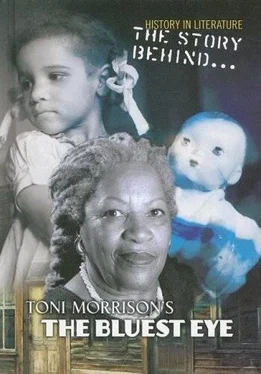She is not talking to me. She is talking to the puke, but she is calling it my name: Claudia. She wipes it up as best she can and puts a scratchy towel over the large wet place. I lie down again. The rags have fallen from the window crack, and the air is cold. I dare not call her back and am reluctant to leave my warmth. My mother's anger humiliates me; her words chafe my cheeks, and I am crying. I do not know that she is not angry at me, but at my sickness. I believe she despises my weakness for letting the sickness "take holt." By and by I will not get sick; I will refuse to. But for now I am crying. I know I am making more snot, but I can't stop. My sister comes in. Her eyes are full of sorrow. She sings to me: "When the deep purple falls over sleepy garden walls, someone thinks of me…" I doze, thinking of plums, walls, and "someone." But was it really like that? As painful as I remember? Only mildly. Or rather, it was a productive and fructifying pain. Love, thick and dark as Alaga syrup, eased up into that cracked window. I could smell it-taste it-sweet, musty, with an edge of wintergreen in its base-everywhere in that house. It stuck, along with my tongue, to the frosted windowpanes. It coated my chest, along with the salve, and when the flannel came undone in my sleep, the clear, sharp curves of air outlined its presence on my throat.
And in the night, when my coughing was dry and tough, feet padded into the room, hands repinned the flannel, readjusted the quilt, and rested a moment on my forehead. So when I think of autumn, I think of somebody with hands who does not want me to die.
It was autumn too when Mr. Henry came. Our roomer. Our roomer.
The words ballooned from the lips and hovered about our heads-silent, separate, and pleasantly mysterious. My mother was all ease and satisfaction in discussing his coming. "You know him," she said to her friends. "Henry Washington. He's been living over there with Miss Delia Jones on Thirteenth Street. But she's too addled now to keep up. So he's looking for another place."
"Oh, yes." Her friends do not hide their curiosity. "I been wondering how long he was going to stay up there with her. They say she's real bad off. Don't know who he is half the time, and nobody else."
"Well, that old crazy nigger she married up with didn't help her head nonq."
"Did you hear what he told folks when he left her?"
"Uh-uh. What?"
"Well, he run off with that trifling Peggy-from Elyria. You know."
"One of Old Slack Bessie's girls?"
"That's the one. Well, somebody asked him why he left a nice good church woman like Delia for that heifer. You know Delia always did keep a good house. And he said the honest-to-God real reason was he couldn't take no more of that violet water Delia Jones used. Said he wanted a woman to smell like a woman. Said Delia was just too clean for him."
"Old dog. Ain't that nasty!"
"You telling me. What kind of reasoning is that?"
"No kind. Some men just dogs."
"Is that what give her them strokes?"
"Must have helped. But you know, none of them girls wasn't too bright.
Remember that grinning Hattie? She wasn't never right. And their Auntie Julia is still trotting up and down Sixteenth Street talking to herself."
"Didn't she get put away?"
"Naw. County wouldn't take her. Said she wasn't harming anybody."
"Well, she's harming me. You want something to scare the living shit out of you, you get up at five-thirty in the morning like I do and see that old hag floating by in that bonnet. Have mercy!" They laugh.
Frieda and I are washing Mason jars. We do not hear their words, but with grown-ups we listen to and watch out for their voices.
"Well, I hope don't nobody let me roam around like that when I get senile. It's a shame."
"What they going to do about Delia?
Don't she have no people?"
"A sister's coming up from North Carolina to look after her. I expect she wants to get aholt of Delia's house."
"Oh, come on. That's a evil thought, if ever I heard one."
"What you want to bet? Henry Washington said that sister ain't seen Delia in fifteen years."
"I kind of thought Henry would marry her one of these days."
"That old woman?"
"Well, Henry ain't no chicken."
"No, but he ain't no buzzard, either."
"He ever been married to anybody?"
"No."
"How come?
Somebody cut it off?"
"He's just picky."
"He ain't picky. You see anything around here you'd marry?"
"Well… no."
"He's just sensible. A steady worker with quiet ways. I hope it works out all right."
"It will. How much you charging?"
"Five dollars every two weeks."
"That'll be a big help to you."
"I'll say."
Their conversation is like a gently wicked dance: sound meets sound, curtsies, shimmies, and retires. Another sound enters but is upstaged by still another: the two circle each other and stop.
Sometimes their words move in lofty spirals; other times they take strident leaps, and all of it is punctuated with warm-pulsed laughter-like the throb of a heart made of jelly. The edge, the curl, the thrust of their emotions is always clear to Frieda and me. We do not, cannot, know the meanings of all their words, for we are nine and ten years old. So we watch their faces, their hands, their feet, and listen for truth in timbre. So when Mr. Henry arrived on a Saturday night, we smelled him. He smelled wonderful. Like trees and lemon vanishing cream, and Nu Nile Hair Oil and flecks of SenSen. He smiled a lot, showing small even teeth with a friendly gap in the middle. Frieda and I were not introduced to him-merely pointed out. Like, here is the bathroom; the clothes closet is here; and these are my kids, Frieda and Claudia; watch out for this window; it don't open all the way. We looked sideways at him, saying nothing and expecting him to say nothing. Just to nod, as he had done at the clothes closet, acknowledging our existence. To our surprise, he spoke to us. "Hello there. You must be Greta Garbo, and you must be Ginger Rogers." We giggled. Even my father was startled into a smile.
"Want a penny?" He held out a shiny coin to us. Frieda lowered her head, too pleased to answer. I reached for it. He snapped his thumb and forefinger, and the penny disappeared. Our shock was laced with delight. We searched all over him, poking our fingers into his socks, looking up the inside back of his coat. If happiness is anticipation with certainty, we were happy. And while we waited for the coin to reappear, we knew we were amusing Mama and Daddy. Daddy was smiling, and Mama's eyes went soft as they followed our hands wandering over Mr. Henry's body. We loved him. Even after what came later, there was no bitterness in our memory of him.
She slept in the bed with us. Frieda on the outside because she is brave-it never occurs to her that if in her sleep her hand hangs over the edge of the bed "something" will crawl out from under it and bite her fingers off. I sleep near the wall because that thought has occurred to me. Pecola, therefore, had to sleep in the middle.
Mama had told us two days earlier that a "case" was coming-a girl who had no place to go. The county had placed her in our house for a few days until they could decide what to do, or, more precisely, until the family was reunited. We were to be nice to her and not fight. Mama didn't know "what got into people," but that old Dog Breedlove had burned up his house, gone upside his wife's head, and everybody, as a result, was outdoors. Outdoors, we knew, was the real terror of life. The threat of being outdoors surfaced frequently in those days. Every possibility of excess was curtailed with it. If somebody ate too much, he could end up outdoors. If somebody used too much coal, he could end up outdoors. People could gamble themselves outdoors, drink themselves outdoors. Sometimes mothers put their sons outdoors, and when that happened, regardless of what the son had done, all sympathy was with him. He was outdoors, and his own flesh had done it. To be put outdoors by a landlord was one thing-unfortunate, but an aspect of life over which you had no control, since you could not control your income. But to be slack enough to put oneself outdoors, or heartless enough to put one's own kin outdoors-that was criminal. There is a difference between being put out and being put outdoors. If you are put out, you go somewhere else; if you are outdoors, there is no place to go. The distinction was subtle but final. Outdoors was the end of something, an irrevocable, physical fact, defining and complementing our metaphysical condition. Being a minority in both caste and class, we moved about anyway on the hem of life, struggling to consolidate our weaknesses and hang on, or to creep singly up into the major folds of the garment. Our peripheral existence, however, was something we had learned to deal with-probably because it was abstract. But the concreteness of being outdoors was another matter-like the difference between the concept of death and being, in fact, dead. Dead doesn't change, and outdoors is here to stay.
Читать дальше











